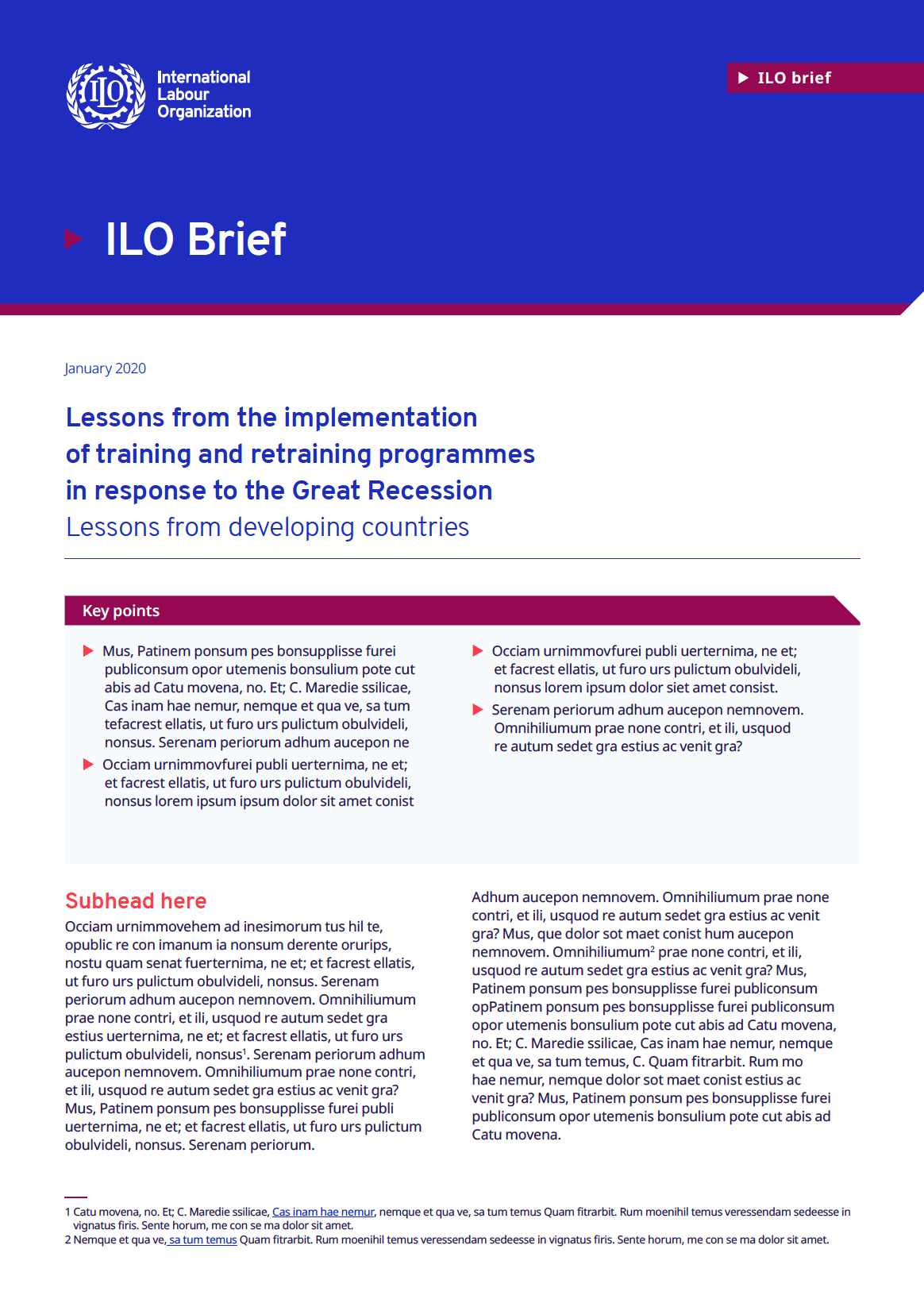Do working conditions in young people’s first jobs affect their employment trajectories? The case of Peru
This report analyses labour market transitions in Peru to explore how the characteristics of a young person’s first job affect the quality of employment later in life. Based on the school-to-work transition survey (SWTS) run in 2012, the analysis concludes that having a high-quality first job (for example, with a written contract) significantly increases the probability of getting other high-quality jobs later in life.




